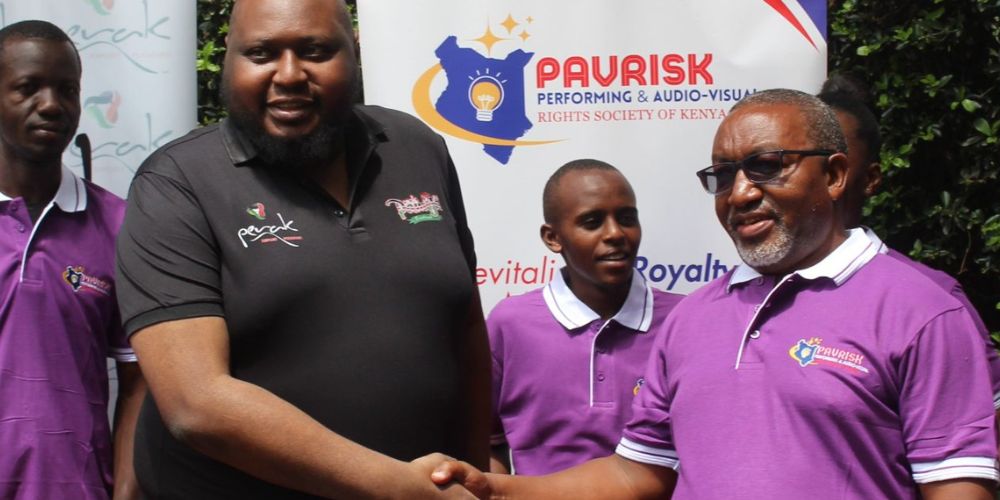The Performing and Audio-Visual Rights Society of Kenya (PAVRISK) has launched a fresh enforcement campaign targeting businesses that play music or display audiovisual content without a Unified Copyright License (UCL).
In a public notice dated July 17, PAVRISK announced it had started issuing invoices to establishments across Kenya that publicly use music and audiovisual material.
The agency said this licensing initiative is in accordance with the Copyright Act, Cap 130, and is regulated by the Kenya Copyright Board (KECOBO).
“This initiative forms part of our routine licensing process. It ensures legal compliance and the equitable compensation of artists, producers, and creators,” said the management of PAVRISK in a statement.
According to the notice, businesses that use copyrighted content, whether for ambiance, promotion, or entertainment, must obtain a UCL.
Read More
These include, but are not limited to, hotels, bars, gyms, salons, shopping malls, clubs, restaurants, medical facilities, cinemas, broadcasters, telecom firms, showrooms, and event organizers.
“PAVRISK reminds businesses that the issued invoices must be paid within 30 calendar days from the date of issuance,” the statement reads.
“Upon expiry of this period, we are obligated to issue a formal Demand Notice, and where necessary, initiate enforcement proceedings as provided for under Kenyan copyright law.”
PAVRISK also cautioned against giving cash to field officers.
“Our Copyright Licensing Officers are not permitted to collect cash payments under any circumstances,” the management emphasized.
“They carry official PAVRISK identification and should be engaged with professionalism and courtesy.”
To acquire a copyright license, businesses are advised to dial *USSD 553# or visit the online portal: https://license.pavrisk.or.ke.
 PAVRISK officials.
PAVRISK officials.
“We encourage any business owner or manager requiring assistance to contact us directly,” said PAVRISK.
The agency reaffirmed its commitment to strengthening Kenya’s creative economy while ensuring compliance with the law.
“This license supports the sustainability of Kenya’s creative economy while protecting users from legal liability,” PAVRISK stated.
The society also defended its enforcement drive as a necessary step toward transparency and fairness.
“PAVRISK remains committed to transparency, fairness, and the revitalization of royalty management for the benefit of Kenya’s creative industry.”
Established under Kenyan copyright laws and licensed by KECOBO, PAVRISK plays a central role in regulating the public use of protected audio and visual content.
Its renewed drive comes amid heightened debate about royalty collection, enforcement, and creator rights in the digital age.
Businesses found to be using copyrighted material without proper licenses risk formal legal notices, possible court action, and reputational damage.
The agency now hopes that clearer communication and flexible payment options will encourage compliance while reducing disruption in service sectors.



-1772427756.jpg)


